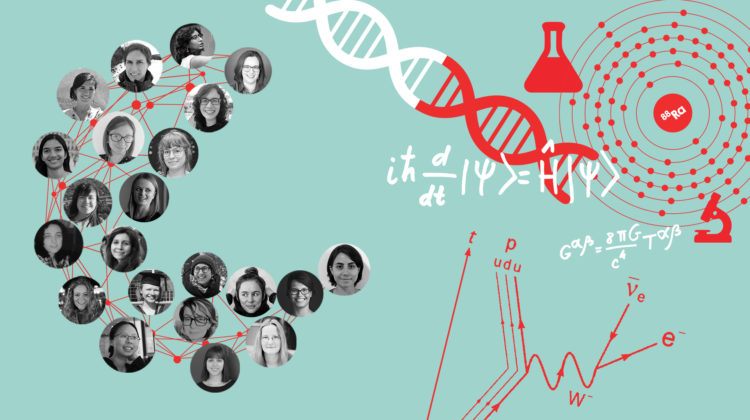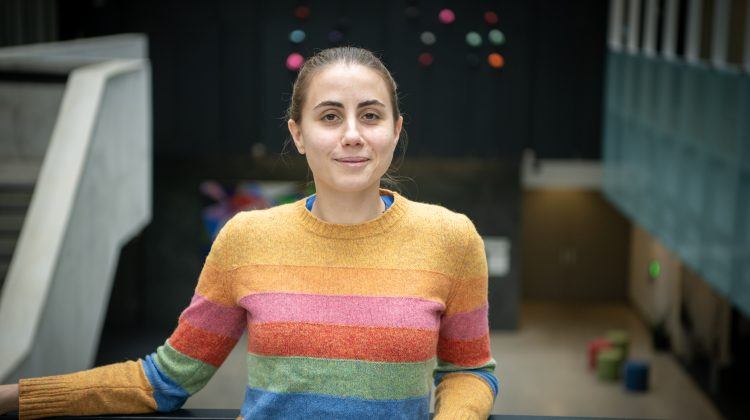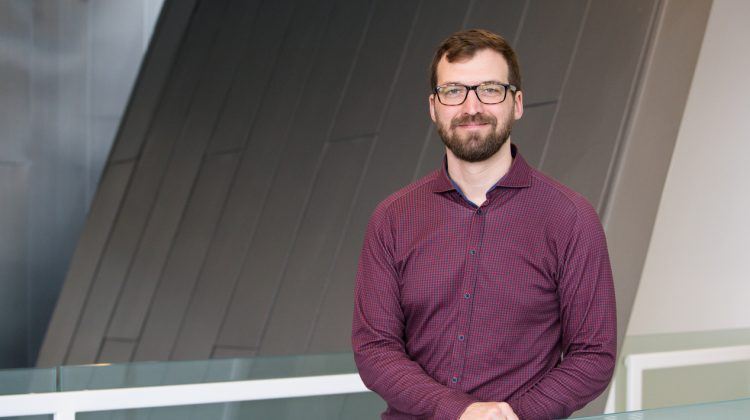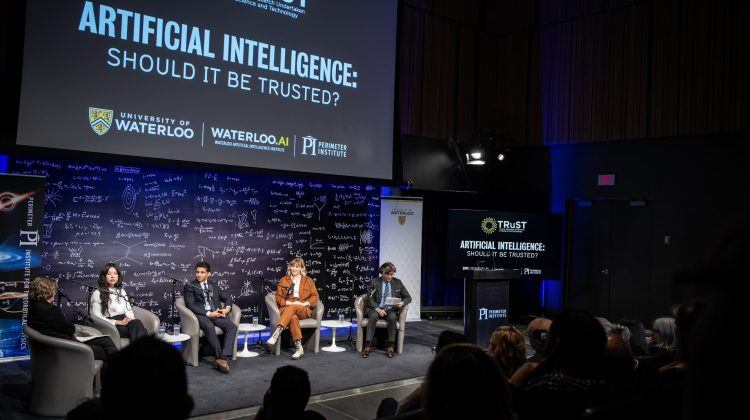People of PI: Connection seeker Ángela Capel Cuevas
One of Perimeter’s recent Simons Emmy Noether Fellows reflects on her fruitful time in Waterloo.
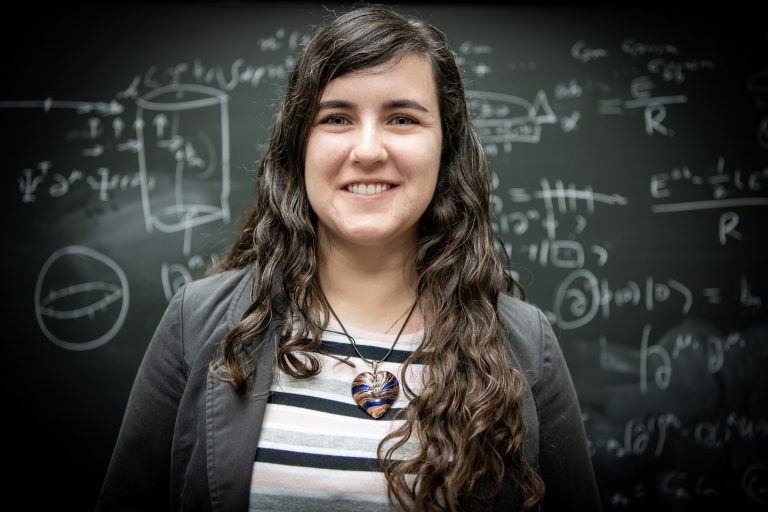
Ángela Capel Cuevas loves to sink deep into her research. “It’s really nice to sit down and start doing calculations at 2:00 in the afternoon and finish at 7:00,” she says. “I look up and it’s dark and I’ve done something brand new.”
Capel has definitely (as the kids say) understood the assignment. She recently spent a couple months at Perimeter as one of the Institute’s Simons Emmy Noether Fellows: early- and mid-career scientists who set aside teaching and administrative duties for up to a year while visiting Perimeter to focus on intensive research. The Simons Emmy Noether Fellowship program is meant to deepen and broaden the fellows’ research programs, and to boost women in physics at a critical stage of their careers.
Capel already had an eye on Perimeter when she applied for the fellowship. When she finished her first postdoctoral position at the Technical University of Munich in 2021, she considered coming to the Institute next.
“I had a few friends doing postdocs at Perimeter, and they told me it was an amazing place,” she remembers. Instead, she accepted a position as a junior faculty member at the University of Tübingen in Germany.
Landing a faculty position after a single postdoc is often a mark of both unusual excellence and excellent luck. It’s not always an easy transition. Capel went from spending about 90 percent of her time researching to trying to squeeze in 30 to 40 percent. Her time as a Simons Emmy Noether Fellow allowed her to flip that ratio back around.
Capel studies how quantum systems decohere: that is, how quantum properties like superposition and entanglement seem to wash away like radio signals dissipating into static. Understanding (and delaying) this dissipation is pivotal for researchers trying to use quantum effects to power emerging technologies.
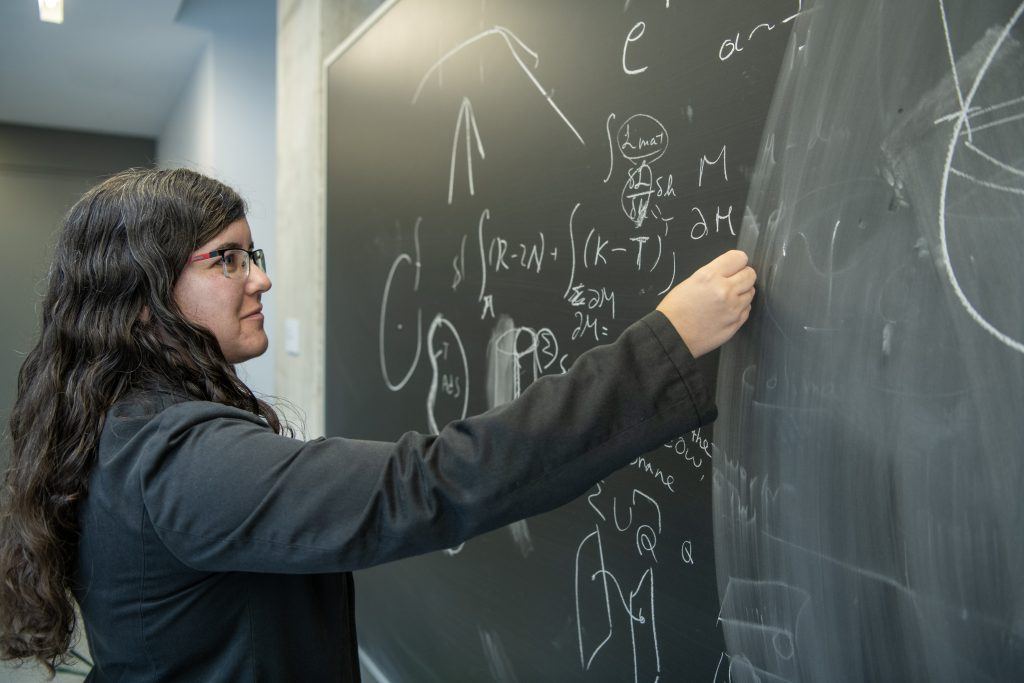
“Essentially, you have a system that is initially quantum and then after some time it decoheres. I study how fast this decoherence happens,” she says.
“Understanding the math behind the evolution of such systems is very key to designing quantum computers. For example, if we model a system that people want to use as a quantum memory and it decoheres too fast, then the memory is completely useless after a short time.”
Her work is fundamentally multidisciplinary. Capel describes herself as often seeking connections just outside her core research areas.
“I don’t only read papers that are super-aligned with the things that I do,” she says. “I read something new, or see people give conference talks or whatever. It’s natural to start chatting with those researchers, and tell them, ‘I’m interested in this paper of yours. I usually do these things. Do you think there’s something that could appear in the interplay?’”
That research approach fits in well at Perimeter.
“I gave a seminar – something that’s very big here,” Capel says. “Many people came up to the seminar to ask different questions. And that’s really nice, because the people here are very smart. They had great ideas. They attend your talk and are immediately trying to apply the things that you present into their fields. And then the connections appear.”
Two of Capel’s latest projects emerged in this fashion, via connections with Perimeter research groups that have pioneered research in complexity theory.
“I’ve never worked on complexity theory before, but it has connections with things I have used a lot, such as quantum Markov chains,” she says. “I’m using familiar tools in a field that I’ve never explored.”
Going deeper into her research? Check. Broadening her approach? Check. Broadening other people’s approaches? Check. Building new networks and collaborations? Check. Capel is the very model of an Emmy Noether Fellow.
Not every stage of a scientists’ career allows for such an encompassing focus on research. But if this fellowship has done its job, Capel can look forward to sinking into many more dark evenings filled with bright ideas.





















































































